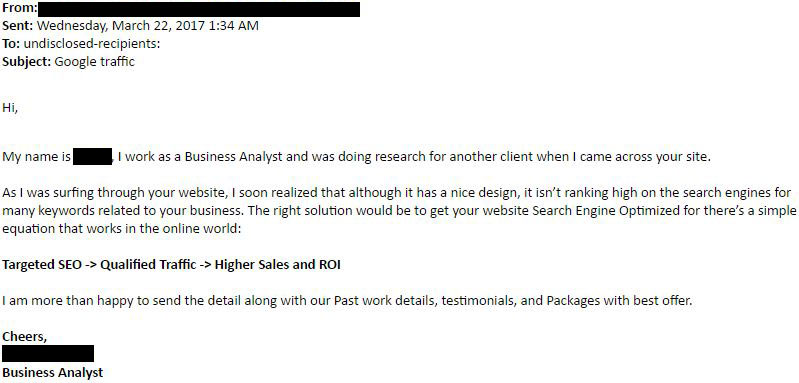
Managing Your Marketing Expectations with SMART Goals
March 16, 2017
14 Digital Marketing Metrics You Should Be Keeping an Eye on
March 30, 2017
If you’ve inherited the job of trying to figure out how to take your marketing to the digital space, you’re probably finding that there’s more to it than you originally anticipated. Whether you’ve never done any sort of digital marketing, or if there have been a few starts and stops by other people along the way, you’ve probably discovered you have a mess to sort out… and you don’t quite know where to start.
How wonderful is it, then, that there are companies who will help you sort through the mess. Someone will take a look at your branding, your resources, your assets, and your current activities, and put that into some sort of framework for you. Then, they will provide you with a roadmap to digital marketing success. How could you possibly pass this up?
Before you go trusting random strangers with the growth of your business, let’s run through a few things to be mindful of going in.
There are 2 types of companies that I want to address here: legitimate consulting firms, and companies that are straight-up scams.
A legitimate consulting firm is going to come highly recommended. They probably aren’t cold-calling or sending spam emails. You get connected with them through a referral or a professional network—someone you can trust.
The other kind of companies send you unsolicited emails with the results of site scans you never initiated, or they cold call you and tell you that you need to be doing X, Y, and Z because your Google listing is out of date or something equally ridiculous. Here’s an example a client—with 288 keywords ranking in the top 10—forwarded over while this article was being written:

Regardless of the intentions of the company you’re considering, here are 3 questions you should ask yourself about the work they’re doing for you.
Question 1: Where do they get their data?
It’s not uncommon for a prospect or client to come to us with data that they’ve received from a third party, claiming things like their site speed is too slow, their keywords aren’t ranking, or various factors vital to SEO aren’t present on their site.
Often, this data was provided by some “proprietary software” that performed some sort of site scan or site evaluation.
Now, “proprietary software” is a term that sounds great. It implies exclusivity, and to be fair, sometimes that’s a great thing.
In these cases, though, it often means that the software has been written to provide whatever results the company who owns it wants it to provide.
If the company is an honest company with a good reputation, then at best, the results should be compared with software that you already know and trust, like Google or HubSpot. Good data will stand up to scrutiny.
Disreputable companies will manipulate or falsify data to instill fear, and to get you to hand over that credit card number.
Unsolicited information sent from an unconnected third party should be treated with a high dose of skepticism.
Question 2: What do they think their data means?
We once had a situation with a client in which we were discussing the navigation bar for the site we were designing. The client insisted that we put the most important page in the drop-down menu instead of in the main navigation, because very often, a user didn’t know to click on the main navigation link.
Having never run into this issue in all of our years designing websites, we were perplexed. So we asked the client why they believed this to be the case.
As it turns out, the client had been working with a web marketing consultant who had provided the client with the results of heat map testing. This data showed that main navigation links were clicked less often than the links in the drop-down menus.
The consultant concluded that this meant that people didn’t know the main navigation links were clickable, and therefore it was not advisable to put important pages in the navigation bar.
This is a perfect example of a reputable consultant taking reliable data and completely misinterpreting it… leading them to give the client bad advice.
The most likely reason for the higher click rate on the drop-down links is simply that the content in the drop-down menu was more precisely what the users were looking for, so the users didn’t need to click on the more generic page.
An example of this would be if there were a “Services” page in the main navigation, and the drop-down links included a list of services, such as “Plumbing,” “Electrical,” and “HVAC.” If your toilet is broken, you’re looking for the “Plumbing” page, and if you see the “Plumbing” page pop up in a drop-down menu, you wouldn’t need to click on the “Services” page.
However, it doesn’t mean that you don’t know that you could click on the “Services” page.
Having reliable data is important, but interpreting that data correctly is equally important. Decisions are made on the interpretations, and those decisions directly affect your market’s impression of your brand.
Question 3: Is their focus on helping me achieve measurable results?
The more insidious concern for me is that many of these companies aren’t focused on growing your business—they’re simply working to justify their own cost. This both saddens and infuriates me.
Even the best consulting companies exist to make money. They charge their users a lot for their expertise, and I don’t mind that so much. Knowledge and experience are both valuable.
What I mind is when they give what I know—because I’m an industry expert—is just fluff advice that makes them sound like they’re saying something important. It makes the customer feel like they’ve really gotten their money’s worth, and now they feel armed with information that I happen to know is relatively worthless. At best it distracts the client from the core focuses, and at worst, it is completely misleading.
The consulting firm will take 6 or 8 months or a year and perform an evaluation on an existing site, maybe do a “brand study,” and provide the client with books and binders full of their findings. It’s all branded and official looking, and the client is relieved that someone has finally taken their web activities in hand. They really feel like they’ve gotten something valuable for their $10- or $15- or $20,000.
And most of the time, it’s just raw data that represents 2 or 3 days’ or a week’s worth of work. It doesn’t mean much to the client and doesn’t really have that much of an effect on the decisions that my company is going to make on site design or Inbound Marketing activities, because best practices are best practices for a reason.
By all means, get multiple opinions.
I am all for consulting multiple experts to get the best, most well-rounded view of a complex marketing challenge, and nothing in this article is meant to suggest that you should never work with a consultant. In fact, there have been a few cases where the work a consulting company has done ends up saving me tons of time and energy or gives me an insight I wouldn’t have come up with.
However, most people hire—or at least welcome—these consulting services because they are so out of their depth when it comes to digital marketing. And of course they are! They are busy running their business or more often, handling the traditional marketing and/or administrative duties, and so they welcome the expert advice. They rely on it. And often, they’ve paid a lot of money for it, so it’s really hard to face the possibility that that advice is unreliable at best… and completely manipulative at worst.
All advice should be evaluated with a healthy dose of common sense. All data should be evaluated for reliability and correct interpretation. Don’t assume the worst about anyone, but keep in mind that it’s easy for consulting companies to take advantage of their clients’ lack of knowledge. If their motives start looking like they’re more interested in serving themselves than your company’s need, you might want to take a closer look at that.









